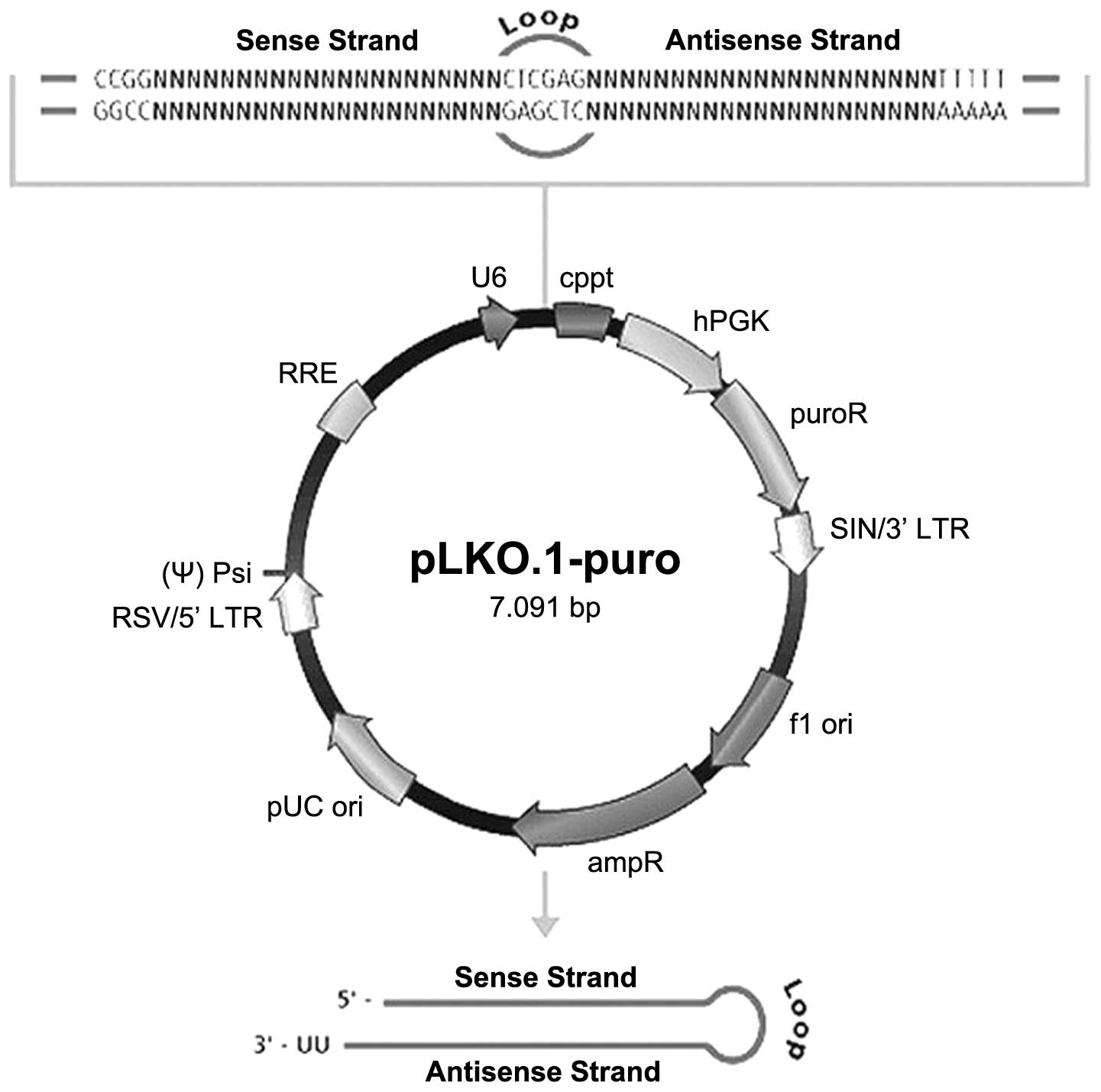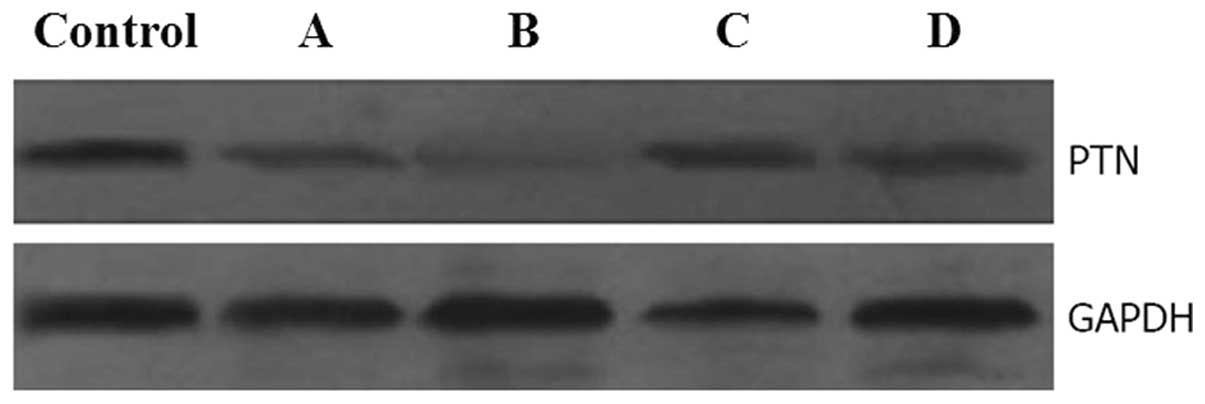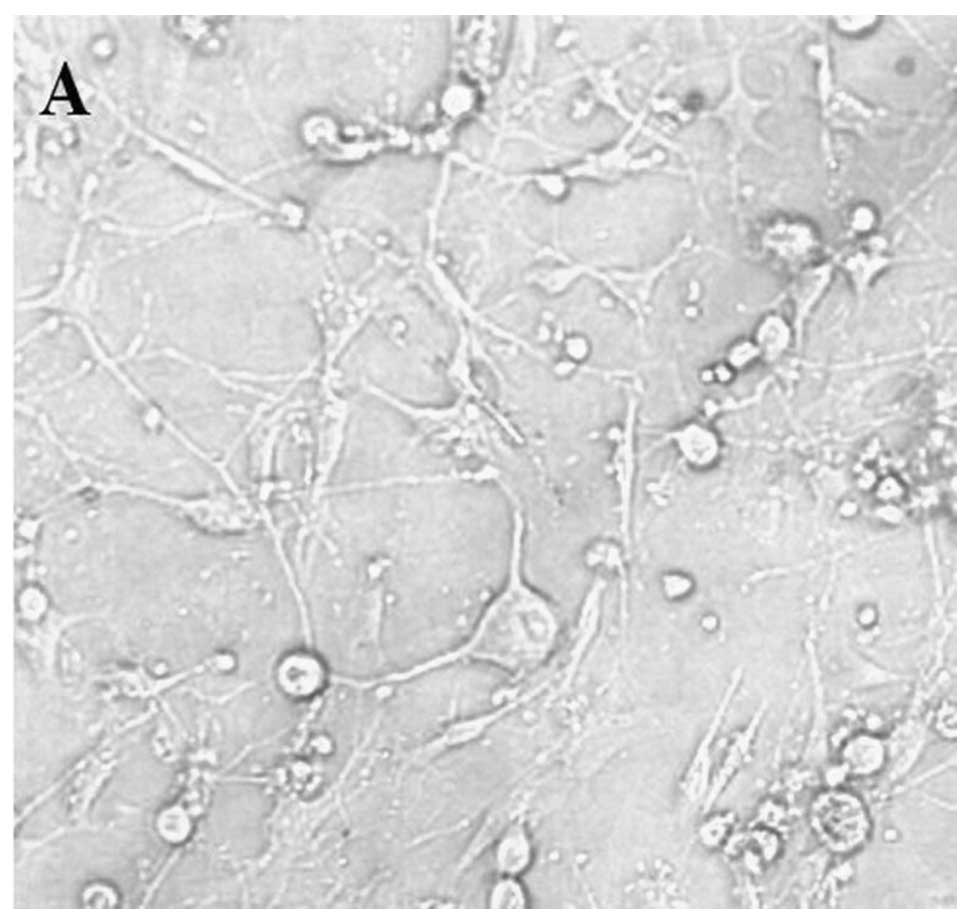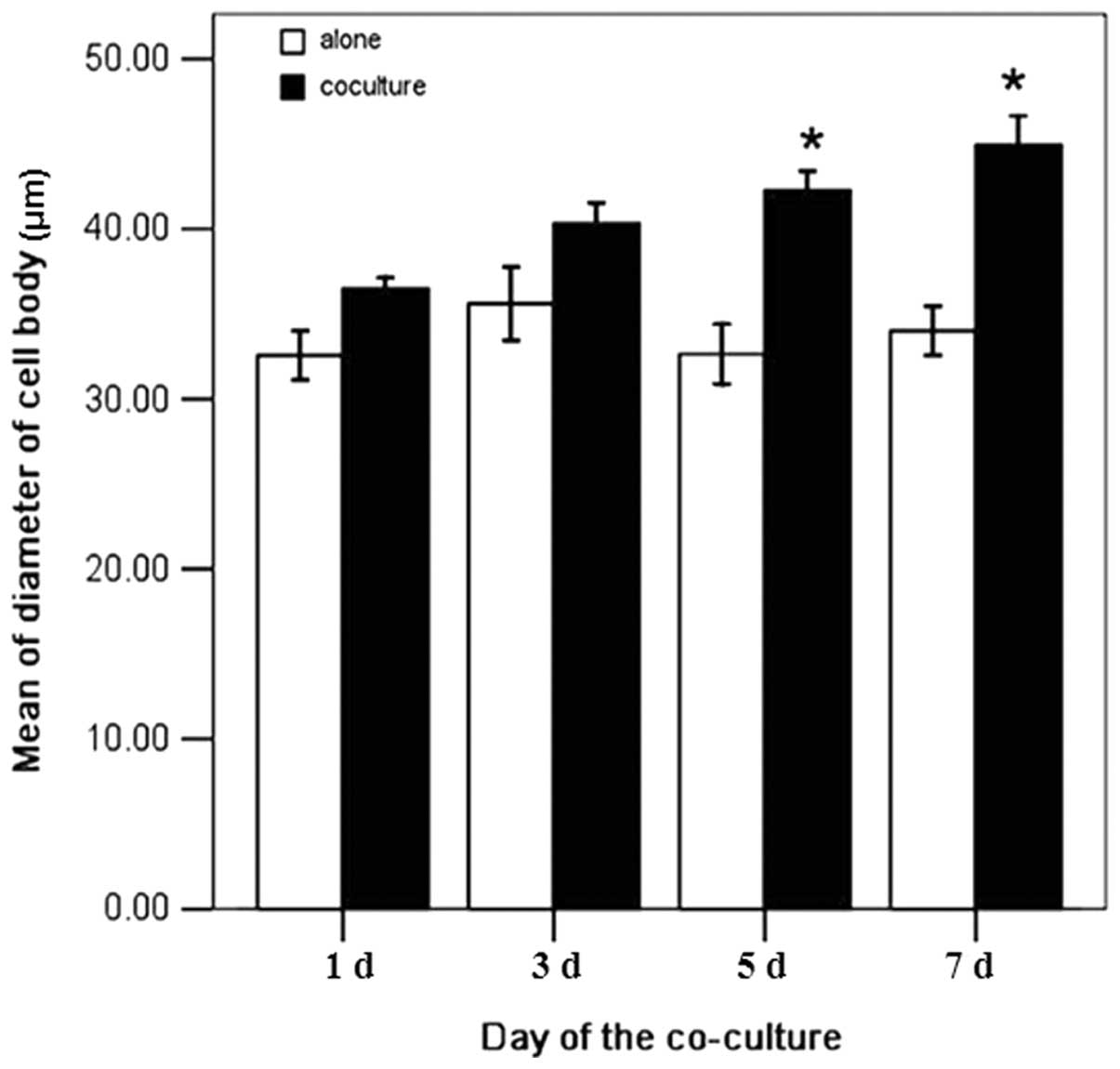|
1
|
Siegel R, Naishadham D and Jemal A: Cancer
statistics, 2012. CA Cancer J Clin. 62:10–29. 2012. View Article : Google Scholar
|
|
2
|
Mössner J: What’s new in therapy of
pancreatic cancer. Dig Dis. 28:679–683. 2010.
|
|
3
|
Han SL, Zhang WJ, Zheng XF, Shen X, Zeng
QQ and Ke QH: Radical resection and outcome for malignant tumors of
the pancreatic body and tail. World J Gastroenterol. 15:5346–5351.
2009. View Article : Google Scholar : PubMed/NCBI
|
|
4
|
Chiang KC, Yeh CN, Lee WC, Jan YY and
Hwang TL: Prognostic analysis of patients with pancreatic head
adenocarcinoma less than 2 cm undergoing resection. World J
Gastroenterol. 15:4305–4310. 2009. View Article : Google Scholar : PubMed/NCBI
|
|
5
|
Bapat AA, Hostetter G, Von Hoff DD and Han
H: Perineural invasion and associated pain in pancreatic cancer.
Nat Rev Cancer. 11:695–707. 2011. View
Article : Google Scholar : PubMed/NCBI
|
|
6
|
Liebig C, Ayala G, Wilks JA, Berger DH and
Albo D: Perineural invasion in cancer: a review of the literature.
Cancer. 115:3379–3391. 2009. View Article : Google Scholar : PubMed/NCBI
|
|
7
|
Ceyhan GO, Michalski CW, Demir IE, Müller
MW and Friess H: Pancreatic pain. Best Pract Res Clin
Gastroenterol. 22:31–44. 2008. View Article : Google Scholar
|
|
8
|
Takamatsu H, Itoh M, Kimura M,
Gospodarowicz D and Amann E: Expression and purification of
biologically active human OSF-1 in Escherichia coli. Biochem
Biophys Res Commun. 185:224–230. 1992. View Article : Google Scholar : PubMed/NCBI
|
|
9
|
Weber D, Klomp HJ, Czubayko F, Wellstein A
and Juhl H: Pleiotrophin can be rate-limiting for pancreatic cancer
cell growth. Cancer Res. 60:5284–5288. 2000.PubMed/NCBI
|
|
10
|
Souttou B, Juhl H, Hackenbruck J, et al:
Relationship between serum concentrations of the growth factor
pleiotrophin and pleiotrophin-positive tumors. J Natl Cancer Inst.
90:1468–1473. 1998. View Article : Google Scholar : PubMed/NCBI
|
|
11
|
Raulo E, Chernousov MA, Carey DJ, Nolo R
and Rauvala H: Isolation of a neuronal cell surface receptor of
heparin binding growth-associated molecule (HB-GAM). Identification
as N-syndecan (syndecan-3). J Biol Chem. 269:12999–13004.
1994.PubMed/NCBI
|
|
12
|
Yao J, Ma Q, Wang L and Zhang M:
Pleiotrophin expression in human pancreatic cancer and its
correlation with clinicopathological features, perineural invasion,
and prognosis. Dig Dis Sci. 54:895–901. 2009. View Article : Google Scholar : PubMed/NCBI
|
|
13
|
Lage H: Potential applications of RNA
interference technology in the treatment of cancer. Future Oncol.
1:103–113. 2005. View Article : Google Scholar : PubMed/NCBI
|
|
14
|
Song J, Cao L and Li Y: RNA
interference-mediated inhibition of survivin and VEGF in pancreatic
cancer cells in vitro. Mol Med Rep. 7:1651–1655. 2013.PubMed/NCBI
|
|
15
|
Fukuda J: Nerve cells of adult and aged
mice grown in a monolayer culture: age-associated changes in
morphological and physiological properties of dorsal root ganglion
cells in vitro. Dev Neurosci. 7:374–394. 1985. View Article : Google Scholar
|
|
16
|
Ceyhan GO, Demir IE, Altintas B, et al:
Neural invasion in pancreatic cancer: a mutual tropism between
neurons and cancer cells. Biochem Biophys Res Commun. 374:442–447.
2008. View Article : Google Scholar : PubMed/NCBI
|
|
17
|
Gil Z, Cavel O, Kelly K, et al: Paracrine
regulation of pancreatic cancer cell invasion by peripheral nerves.
J Natl Cancer Inst. 102:107–118. 2010. View Article : Google Scholar : PubMed/NCBI
|
|
18
|
Ma J, Jiang Y, Jiang Y, Sun Y and Zhao X:
Expression of nerve growth factor and tyrosine kinase receptor A
and correlation with perineural invasion in pancreatic cancer. J
Gastroenterol Hepatol. 23:1852–1859. 2008. View Article : Google Scholar : PubMed/NCBI
|
|
19
|
Marchesi F, Piemonti L, Fedele G, et al:
The chemokine receptor CX3CR1 is involved in the neural tropism and
malignant behavior of pancreatic ductal adenocarcinoma. Cancer Res.
68:9060–9069. 2008. View Article : Google Scholar : PubMed/NCBI
|
|
20
|
Ceyhan GO, Schäfer KH, Kerscher AG, et al:
Nerve growth factor and artemin are paracrine mediators of
pancreatic neuropathy in pancreatic adenocarcinoma. Ann Surg.
251:923–931. 2010. View Article : Google Scholar : PubMed/NCBI
|
|
21
|
Yao J, Zhang M, Ma QY, Wang Z, Wang LC and
Zhang D: PAd-shRNA-PTN reduces pleiotrophin of pancreatic cancer
cells and inhibits neurite outgrowth of DRG. World J Gastroenterol.
17:2667–2673. 2011. View Article : Google Scholar : PubMed/NCBI
|
|
22
|
Celius T, Garberg P and Lundgren B: Stable
suppression of MDR1 gene expression and function by RNAi in Caco-2
cells. Biochem Biophys Res Commun. 324:365–371. 2004. View Article : Google Scholar : PubMed/NCBI
|
|
23
|
Schuck S, Manninen A, Honsho M, Füllekrug
J and Simons K: Generation of single and double knockdowns in
polarized epithelial cells by retrovirus-mediated RNA interference.
Proc Natl Acad Sci USA. 101:4912–4917. 2004. View Article : Google Scholar : PubMed/NCBI
|
|
24
|
Blondet B, Carpentier G, Lafdil F and
Courty J: Pleiotrophin cellular localization in nerve regeneration
after peripheral nerve injury. J Histochem Cytochem. 53:971–977.
2005. View Article : Google Scholar : PubMed/NCBI
|
|
25
|
Hida H, Masuda T, Sato T, Kim TS, Misumi S
and Nishino H: Pleiotrophin promotes functional recovery after
neural transplantation in rats. Neuroreport. 18:179–183. 2007.
View Article : Google Scholar : PubMed/NCBI
|
|
26
|
Dai H, Li R, Wheeler T, et al: Enhanced
survival in perineural invasion of pancreatic cancer: an in vitro
approach. Hum Pathol. 38:299–307. 2007. View Article : Google Scholar : PubMed/NCBI
|



















